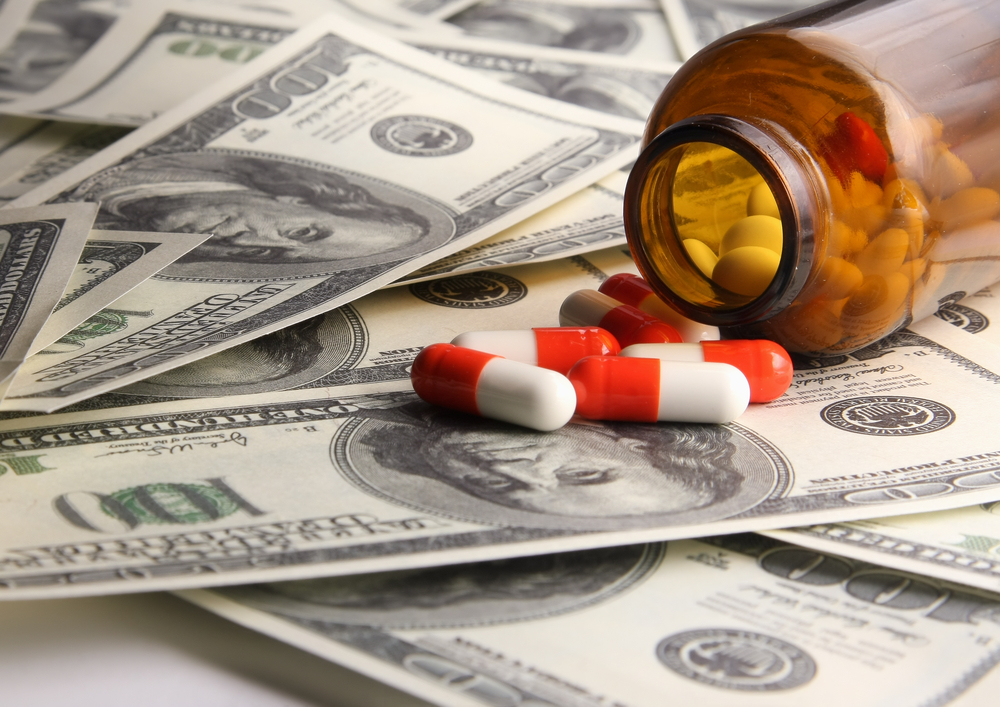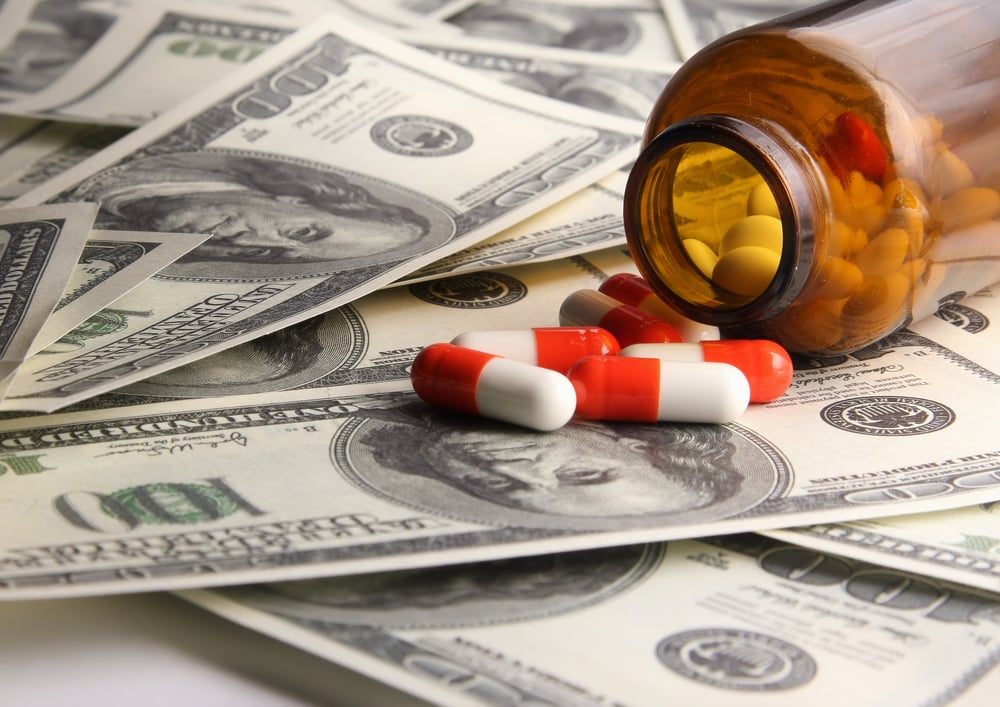
How Prescription Drugs are Driving Up Healthcare Costs

Health care costs have long been a topic of heated debate. How to solve this issue, while ensuring that those who need it most still have access to the coverage they need is a challenge that has stumped the greatest minds of our time to be sure. Unfortunately, this inability to solve the issue has led to more and more increases in healthcare costs. It’s no secret that prescription drug costs affect your insurance, especially when it comes to certain drugs, namely brand-name drugs, and specialty drugs. The question is, what can you do about it.
Health Insurance is Expensive
While the cost of your healthcare will depend on various factors, like whether you are purchasing a plan through an employer or on your own, along with your age, size of your family, and your geographical location, on average, Americans spend around $7,470 annually as an individual or $21,342 for family coverage these numbers according to the Kaiser Family Foundation. If you aren’t fortunate enough to have company-issued coverage, and instead have to purchase your plan privately, you can expect to pay around $458 per month according to E Health Consumer Report.
All this to say that health insurance is expensive and only getting more so as the years pass. Therefore, it’s immensely important for us to figure out ways to affect this negative trend, by encouraging a reduction in costs. One important element you might not have considered before that has a great deal of impact on your overall costs of healthcare coverage is the cost of prescription drugs.
While medical advances have paved the way for better medication, a byproduct is a reliance on brand-name drugs and the increased use of specialty drugs that drives up the cost of healthcare.
What Are Specialty Drugs?
Before delving deeper into the topic at hand, it’s important to define what it means for a drug to be classified as a specialty drug. According to the Pew Charitable Trusts, a specialty drug is any medication with a high cost for a course of treatment or for a year of therapy. Some health plans classify these drugs as novel therapies, which have to be specially handled, administered, or monitored. Another way to make this distinction is cost. For example, Medicare defines specialty drugs as any medication that costs more than $600 per month. In fact, around 85% of all health plans factor in the cost of the drug when classifying it as a specialty drug.
The Reality of Specialty Drugs And Their Cost
The reason why specialty drug costs are closely tied to increased healthcare costs is the immense increase in cost for these drugs as it relates to general inflation. In fact, the average brand-name or specialty drug that Medicare Part D paid for grew five times as fast as average inflation between 2009 and 2018. A Magellan Health Report found that per month spending on therapies increased by 18% between 2016 and 2017 for their monthly plans. Kristen Reimers who is the Senior Vice President for Specialty Clinical Solutions said the following about the increase in costs:
“In previous years, drug pricing and inflation have really been the drivers of the trend. This year, our analysis showed that drug spend was driven overwhelmingly by an increase in unit volume, in other words, more specialty medical benefits drugs are being utilized.”
Why Cost Is Increasing For Specialty Drugs?
There has been an increase in research and development within pharmaceuticals, providing more specialty drugs for special cases. The increased cost is not the result of generic drugs created to treat generic conditions taken by lots of people. Instead, it rests solely on the back of specialty drugs that are designed instead to treat very specific conditions that might only impact 1-2% of the entire population. This one element of specialty drugs, these ultra individualized treatments can account for upwards of 30% of the increased spending on drugs, overall, with half of these drugs costing more than $100,000! This means that a drug that only 1-2% of Americans take is effectively driving up the costs of healthcare as it relates to drug expenditures by 38%.
It’s also worth noting that even within the category of specialty drugs, there can be a disparity in the cost of administering these drugs that can contribute to even more increase in costs for insurance companies, and subsequently consumers. Hospitals charge more for specialty drugs and their administration than physician clinics. Therefore, it’s not only about the drug itself but where and how a patient is treated that is adding to the increased cost associated with specialty drugs.
Understanding the Difference Between Brand-Name Drugs and Generic Drugs
The difference between brand-name drugs and their generic counterpart is in name only. Generic drugs are produced after a brand-name drug is released. The generic option has the same active ingredient, is administered the same way, and produces the same effect. A generic drug’s appearance is different from the name brand in terms of size, shape, and color. This makes people think it’s a different drug, but there is no difference in terms of efficacy. Other than that, the only difference then is the name on the label and the cost.
Generic drugs cost significantly less than their brand-name counterparts both in actual cost and in the amount of the copay - often between 20% up to as much as 80%.
The Challenge of Drug Price Increases
Unfortunately, there are many challenges associated with counteracting this growing problem. The following will outline some of the most common myths that have led to the continuation of this problem:
-
Myth #1: Generic Isn’t as Good:
There is a negative stigma attached to generic drugs. For some patients, when they hear the word generic, they think this means the drug is somehow a lesser product compared to a name-brand drug. However, in most cases, this is not the situation at all, and the generic is just as good as the name brand. Generic drugs are equally as effective as their branded counterpart. The FDA scrutinizes generic drugs just like it does brand-name drugs to ensure quality and efficacy. If you are unsure, ask your primary care physician who will be able to make sure the active ingredient in the generic is the same as the brand label. -
Myth #2: Doctor Knows Best and Shouldn’t be Questioned
It’s not rude or disrespectful to question a doctor’s choice of medication or to ask if there is a generic available that could do the job just as well. A doctor is primarily concerned with what the drug does - at its active ingredients - and can point you in the direction of an equally effective though less expensive generic option where one is available.
What You Can Do to Control the Expense
Thankfully, you aren’t powerless in this situation and can take steps toward limiting the increase in insurance costs across the board. If everyone puts the following tips into practice, it would go a long way towards decreasing the upward trend of increased costs for medications:
- Ask your doctor for a generic option when you get your prescription. As mentioned above, if you mention the cost, most doctors are more than willing to give you a more affordable alternative.
- Take your medication either at home or at a clinic instead of going into the hospital via an outpatient setting. This step alone can save between 33 and 50% on the overall cost.
- Inquire about mail-order medications. This allows you to buy directly from the drug company in larger quantities, often saving you money.
Bottom Line: Your Healthcare is in Your Hands
It’s not just the insurance company that is affected by the increased cost of medications. It’s important to know what is the impact of higher drug prices on your healthcare. The increase in claims will be passed on to the business at renewal time, which means the increased cost is passed down to you in the form of a premium increase.
While you might feel powerless to fight against the increased costs of healthcare, you should know what is the impact of higher can be your own advocate and help control the costs of your own healthcare. You do have options, so don’t hide your head in the sand and assume you have no choice in the matter. Doing your part will help you and your employe
r keep the cost of insurance from going up, saving yourself and your entire company more of your hard-earned money.


